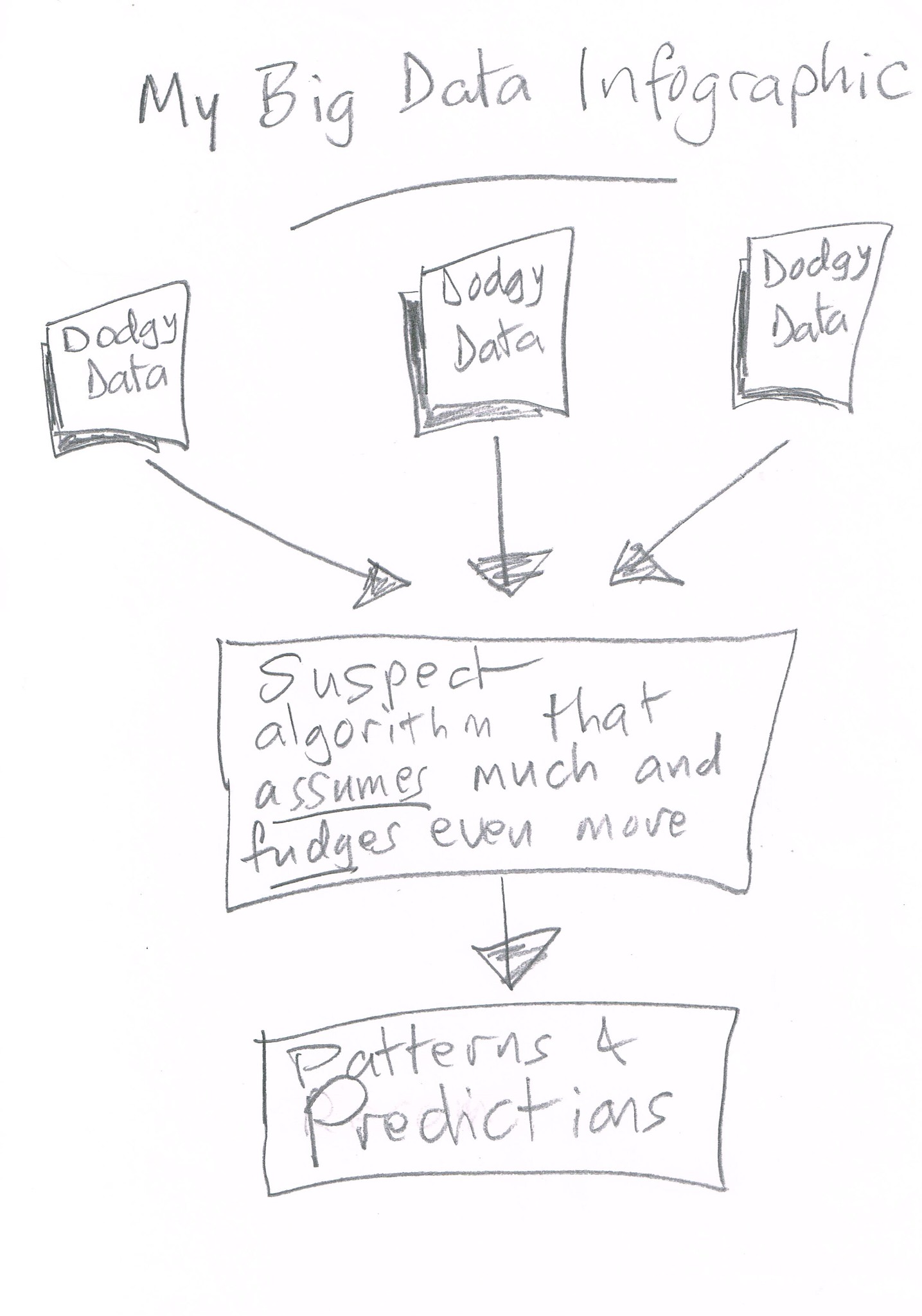I noticed a few years ago at the Bett show that companies were going for data recording in a big way. For example, an online textbook system measures how much of a book a student has read, how long they spent on it, and probably what they were wearing at the time.
What's the point?
Data is only useful if it provides information, and especially information that would be hard to get in another way. In this case, I think the following:
Is it possible to game the system? If I thought I was being measured on how long I spend reading something, I'd be tempted to start the system up and then go out for a few hours!
Is the data correlated with other data? If I spend three hours reading something, compared with your 10 minutes, does that mean I find the subject matter difficult, I'm a slower reader, you're not interested, that I don't find the author's writing style very engaging, or what?
Is the data correlated with other data? For example, do students who spend longer on a text obtain better test results?
Is the system integrated with the school's management information system? I saw several products at the Bett show (2019) where the answer was "No", so you would end up having two logins, two sets of data, and a lot of work integrating the two.
What does it tell you anyway? When I'm reading, I stop every so often to think about what I'm reading, and the kind of things I think the author might cover. I've said more about my approach to reading in an article about reading efficiently.
Reader LM made a similar point when we were discussing some headphones that can measure the wearer's brainwaves to check if they're paying attention. Maybe they are making all sorts of connections in their minds, but the headphones would probably conclude that they were "merely" daydreaming.How do such systems meet GDPR (or other privacy laws) requirements? You're supposed to gather and retain only data that is used for specific purposes, and for which people have given their consent. I'm no legal expert, but the concept of headphones that measure and store pupils’ brainwaves for no obvious reason or without their informed consent sounds like a nightmare to me.
Here's a radical suggestion, in case you're thinking of buying a system that measures brainwaves, time spent on a task, and similar personal data. Rather than be concerned with input, look at output. In other words, if a student can answer a question or do well on a test, that is the only thing you need to know about them. If someone doesn't do well, set a diagnostic test or even (outlandish suggestion coming up), talk to them. Indeed, talking to them will also prove useful when you wish to check whether they obtained the right answer for the right reason. See? I’ve just saved you a load of money!
This article first appeared in the Digital Education newsletter.

